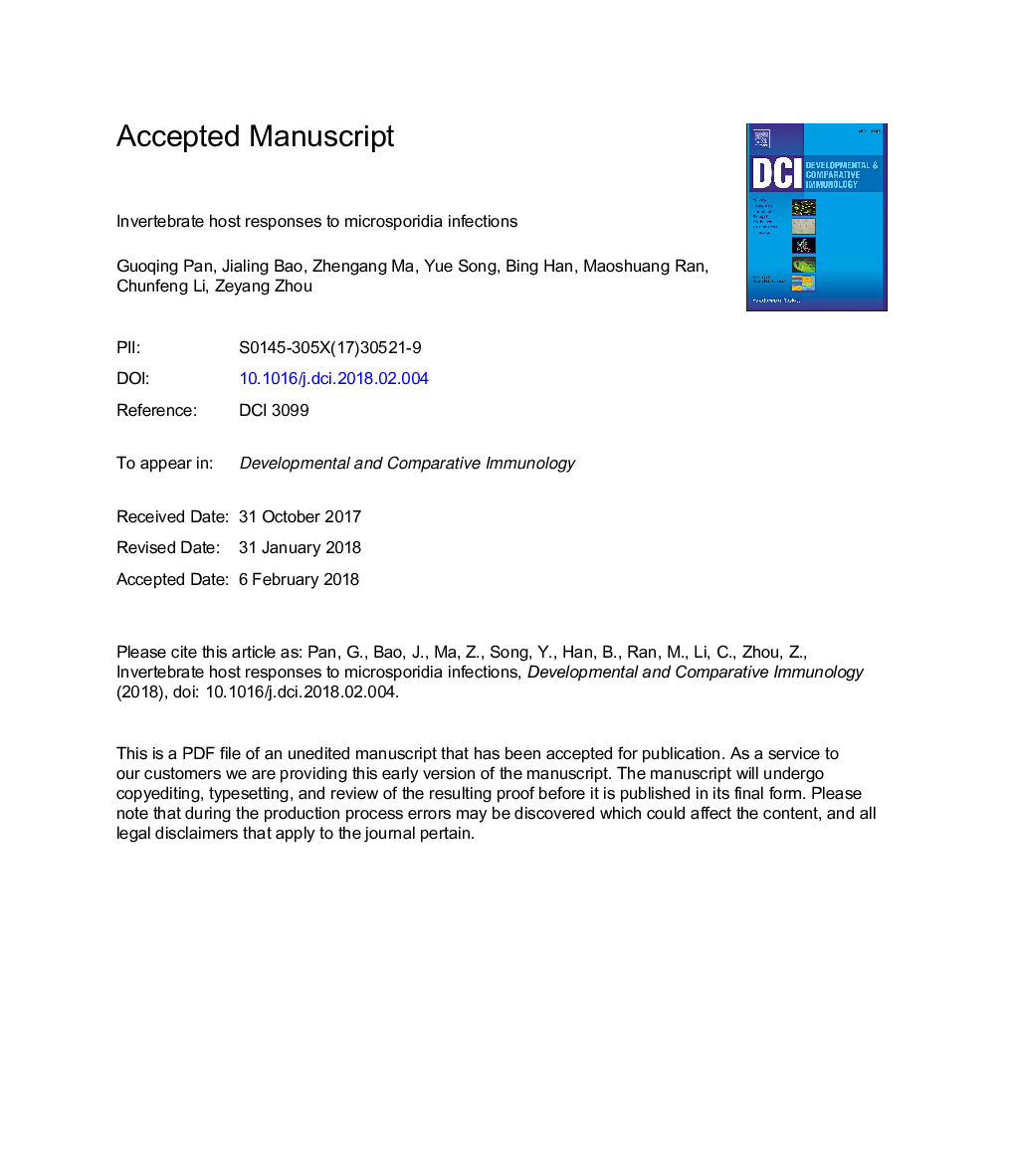| Article ID | Journal | Published Year | Pages | File Type |
|---|---|---|---|---|
| 8497772 | Developmental & Comparative Immunology | 2018 | 28 Pages |
Abstract
Microsporidia are a group of fungi-like intracellular and unicellular parasites, which infect nearly all animals. As “master parasites”, over 1400 microsporidian species have been described to date. Microsporidia infections in economical invertebrates (e.g., silkworm, shrimp) cause huge financial losses, while other microsporidia infections in daphnia, nematode, locust, honeybee and mosquito play important roles in the regulation of their population size. Research investigating invertebrate host responses following microsporidia infections has yielded numerous interesting results, especially pertaining to the innate immune response to these pathogens. In this review, we comparatively summarize the invertebrate host responses to various microsporidia infections. We discuss numerous critical events in host responses including ubiquitin-mediated resistance, production of reactive oxygen species, melanization and innate immune pathways, and the increased basic metabolism and the accumulation of juvenile hormone in infected hosts. Recent studies progressing our understanding of microsporidia infection are also highlighted. Collectively, these advances shed more light on general rules of invertebrate host immune responses and pathogenesis mechanisms of microsporidia, and concurrently offer valuable clues for further research on the crosstalk between hosts and intracellular pathogens.
Related Topics
Life Sciences
Biochemistry, Genetics and Molecular Biology
Developmental Biology
Authors
Guoqing Pan, Jialing Bao, Zhengang Ma, Yue Song, Bing Han, Maoshuang Ran, Chunfeng Li, Zeyang Zhou,
